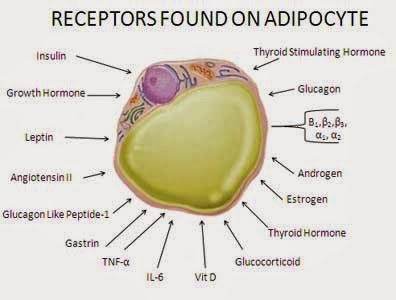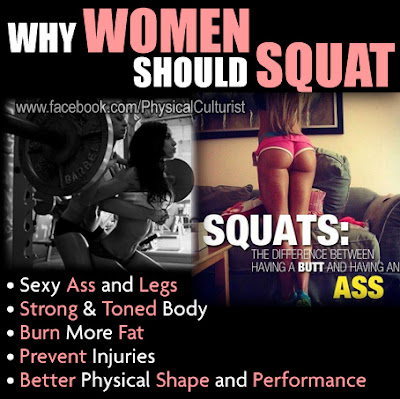On the
internet, I see a lot of arguments that go like this;
Carbohydrates
are bad for you because they cause your body to release insulin. Insulin is a
hormone which stores fat and stops you burning fat. Therefore, if you are
storing fat and not burning it, you get fat. Therefore, carbohydrates make you
fat.
sounds plausible.... here’s why it’s bullshit.
In order to
gain weight, we have to store more energy than we burn; this is a fact we
cannot deny. But insulin theorists seem to think that this hormone can bypass
the laws of physics and create energy out of nowhere. Let’s look at the logic
behind this.
Person A
Person A
eats a meal of pure carbohydrate at 800 calories, their insulin raises. Imagine
a worst case scenario where ALL OF IT gets quickly stored as fat (this would
not happen anyway, as a large majority would be stored as glycogen, or burned
off on the spot). Even in a worst case scenario, they can only store 800
calories of energy as fat. THEY CANNOT STORE MORE ENERGY THAN THIS.
Person A
Now, once
that meal has digested, the blood sugars have dropped (because it has all been
turned into fat), insulin levels drop and fat burning increases again. If the
person needs a total of 2000 calories in a day for their metabolic rate, they
have to get that energy from somewhere – which will now be fat stores (or
glycogen stores too, if any of that carbohydrate was stored away in this form).
So, Person A may have stored 800 calories, but then he has to get 2000 calories
back out of the fat stores.
Net result –
minus 1200 calories
Person B
Person B is
our low carb Zealot. They hate insulin, so do everything they can to stay in an
insulin free state (not possible, as we all have baseline insulin levels). This
person eats 800 calories, but in the form of pure fat. But they think they are
not storing any fat because they haven’t got any insulin running around in
their body, right?
PersonB
Even if
they were right (which they are not, there are other hormones in the body which
store fat too), let’s look at what will happen. If the body is not storing the
ingested 800 calories of fat, it will have to burn it from the blood. Their
metabolism is 2000 calories per day also, so their body gets 800 of this from
the ingested fat, and the other 1200 from fat stores.
But even in this example where NO fat was stored and ONLY fat was used as fuel,
the person still ends up only in 1200 calories deficit.
And this was the extreme example
This was
giving full benefit of the doubt to the ‘insulin theorists’ also. In real life,
most ingested carbohydrate gets burned off on the spot (one of the main actions
of insulin is to tell the body to switch to higher blood glucose oxidation) so
less can be stored as fat. Most of the excess which is above and beyond
oxidation rates get stored as Glycogen, not fat, in the liver and muscle. This
means that, with our 800 calories carb meal, almost none of it would get stored
as fat.
Even when
we increase the calories, the math stays the same.
On top of
this, studies have shown that it takes an incredible amount of carbohydrate
ingestion to see any amount of de novo lipogenesis (fat creation from glucose).
It is much more likely that the glucose will be used for metabolic purposes or
stored as glycogen before any fat is created. After all, energy is lost when
our body makes fat out of glucose. This is not evolutionary advantageous (it would
be better to be as energy efficient as possible).
This is also not evolutionary advantageous
Insulin Action
To look at
insulin and say that it is a fat storing hormone, and fat burning suppressor,
is only half the story, and doesn’t make us fat anyway, as the last examples
illustrated. Insulin has several roles, many of which are designed to let the
body know there is carbohydrate in the blood stream, and to switch to burning
this off in whatever way possible (increased oxidation, glycogen creation and
fat storage) to lower blood sugars to normal levels. This is why insulin
correlates so highly with blood sugar levels/carbohydrate intake.#
Insulin action
Insulin also
serves as a break for endogenous glucose production. When our body is in a
fasted state, we produce our own blood glucose (barring hypoglycemics) through
gluconeogenesis (conversion of proteins to blood sugar) and conversion of
glycogen to glucose. This keeps our blod sugars relatively stable
postprandially. But this internal sugar production is not necessary when we
have ingested carbohydrates. So insulin is a messenger to tell our body to stop
creating its own sugar.
Anyway,
insulin doesn’t just put a halt on fat burning. People see things so black and
white these days. Our bodies are constantly burning and storing fat, building
and breaking down muscle etc. It is the balance at the end of all of this which
counts. Add to this, fat burning is not an on/off switch. Increases in insulin
simply lower the percentage of fat which is utilised for metabolic purposes,
but does not switch it off. The whole point is to just shift around what source
you are using predominantly for fuel. How much you use/store will determine
your balance at the end of the day, which will determine whether your body is
building up (building fat/muscle) or catabolising (losing fat/muscle).
What most low carbers also don't realise is that even low carb diets can produce blood sugar through an act called gluconeogenesis. Protein gets broken down into sugars and can be used as fuel. Some extremists, like LCHF dieters, even lower protein intake to get around this. but there is no getting around the laws of thermodynamics - as my examples showed (one was high carb, the other was Low carb high fat).
Ans some non-carb foods can raise as much insulin as standard carbohdyrate rich foods.
But my low carb diet works
Great, that’s good for you. It can work, I am not
denying that. But low carb diets work as a result of controlling calories
indirectly. Eating less carbs results in eating more protein and fat – which are
very satiating (and is why I recommend keeping fat in your diet, and eating
high levels of protein).
But most of the differences in scientific studies comparing diets of different
macronutrients (in equicaloric statuses) can be put down to
·
Difference
in protein intake (protein is thermogenic and loses more calories in the body)
·
Bigger
water losses through lost glycogen (we store an incredible amount of water in
our bodies)
·
Lower
gut bulk (low carb diets tend to be less fibrous and more energy dense).
And as Dr John
Berardi recently pointed out HERE, the cascade of hormonal events
happening on a low carb diet can serve to lower performance in athletes, and
see a drop in muscle mass as a result of lower glycogen stores, lower insulin
(insulin is muscle sparing) and lowered training volume. Also, testosterone to
cortisol ratios go out of whack in the long term – not great for muscle
building/maintaining.
I will say, however, this can be offset by low carb diets having larger amounts
of protein. But it would be better to have a high protein diet and include enough
carbs to reduce the negative effects, without adding too many calories.
And while
low carb diets do work well for most (especially in the first couple of weeks,
due to the massive drops in water weight), they can be difficult to sustain for
the majority of folk. Real success in dieting is having the ability to maintain
that diet for life. Ask yourself this – is low carb something you can really do
for life?
Summary
Insulin does
not cause you to get fat. Insulin has many actions, but it can only make you as
fat as the energy you bring in to the system.
Insulin has
many actions – making us fat is not one of them.
Low carb
diets may not suit all, especially athletes.
As an
important note, I am not anti-low carb. There can be several benefits to low
carb. Increased satiation, increased fat intake, increased protein intake and
better blood glucose control are just some. This post is more an attack on the insulin
theory of obesity.
































